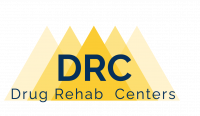What Does Relapse Mean?

If you have been living sober for some time then go back to using drugs or drinking alcohol, this is called a relapse. It can happen to anyone who is trying to recover from an addiction, even those who have been sober for many years. According to a study, 2 out of 3 people relapse within 90 days after starting their sober life. National study of recovering adults says that an average person takes more than 5 attempts to completely recover from their addiction.
In this post, we are going to discuss the reasons for relapse and learn more about the relapse process.
What Is Relapse?
In addiction recovery, relapse is defined as a return to drug or alcohol use after an attempt to stop. This can be devastating for the individual, as well as their loved ones. It can feel like all the progress made has been lost, and it can be difficult to see a way forward.
However, relapse does not have to be the end of the road. It can be seen as a setback, but one from which it is possible to learn and grow. With the right support, an individual can get back on track and continue on their journey to sobriety.
A relapse is more likely to happen within the first year of sobriety, but that doesn’t mean it can’t happen later on.
Does Relapse Mean Failure Of Addiction Treatment?
Relapse does not mean you have failed addiction treatment. In fact, relapse is a common part of the recovery process for many people. Addiction is a chronic, relapsing disease, which means that even after successful treatment, people can still experience occasional setbacks or relapses. According to people who have dealt with substance use disorders, these are the primary reasons for a relapse:
- Stress
- Anxiety
- Negative mood
- Temptation
- Boredom
- Lack of positivity
- Toxic relationships
There are three theories that try to explain our cravings for a substance or alcohol: biological, cognitive, and affective. Let’s learn more about these in detail.
Biological Explanations Of Craving
Addiction is a chronic, relapsing disease characterized by compulsive drug/alcohol-seeking behavior and use despite harmful consequences. Long-term substance use alters the brain in ways that lead to persistent cravings for the substance or alcohol. These changes in brain function make it difficult for people who are addicted to stop using even when they want to.
And we cannot neglect the role of genetics in addiction. Studies show that people who have a family history of addiction are more likely to develop addiction themselves. This may be because they inherit genes that make them more vulnerable to the disease.
Cognitive Explanations Of Craving
How you think about drugs or alcohol when you are sober can influence whether or not you will cave in to a craving. People who think more negatively about drugs and alcohol are more likely to give into cravings.
It’s always better to think about the long-term negative effects of drugs and alcohol before you find yourself in a situation where you’re considering giving in to a craving. If you can think about the negative consequences of using, it will be easier to resist the urge to use.
Do not blame yourself if you do give into a craving. It is normal to have cravings, and it doesn’t mean that you are weak. Beating yourself up will only make it harder to resist future cravings. Instead, try to learn from your experience and use it to strengthen your resolve to stay sober.
Affective Explanations Of Craving
People who often deal with negative emotions are more likely to relapse than those who don’t. One theory is that negative emotions “prime” the brain for relapse by activating craving-related neural circuitry.
A second theory suggests that negative emotions increase vulnerability to relapse by impairing executive function (the ability to control impulses and make decisions). This theory is supported by research showing that people who are experiencing negative emotions have difficulty with tasks that require self-control.
So if you’re trying to stay sober, it’s important to find ways to deal with your negative emotions in a healthy way.
Don’t Let Relapse Discourage You
Relapse is a part of the recovery and rehabilitation process. As a matter of fact, research indicates that relapse rates for those with substance use disorders are similar to those for other chronic illnesses, such as hypertension and diabetes.
With that in mind, it’s important not to let a relapse discourage you from continuing on your journey toward recovery. Here are four tips to help you stay motivated and focused on your goals:
Believe In Yourself
One of the most important things you can do is to believe in yourself when you are trying to sober up. Remember that you are capable of overcoming any obstacle that comes your way. Draw on your inner strength and resilience to keep moving forward.
Think Positively
Instead of dwelling on past mistakes, focus on the progress you’ve made and the goals you still want to achieve. Keeping a positive outlook will help you stay motivated and on track.
Prepare For Treatment
If you do experience a relapse, it’s important to be prepared. Have a plan in place for getting back on track. This may include seeking professional help or support from friends or family members. Having a solid plan can make all the difference in maintaining your sobriety in the long run.
Seek Help From Drug Rehab Centers
If you’re struggling to overcome addiction, seek help from the most reputed drug rehab centers. These facilities offer comprehensive treatment programs that can provide you with the tools and resources you need to successfully recover from substance abuse.
